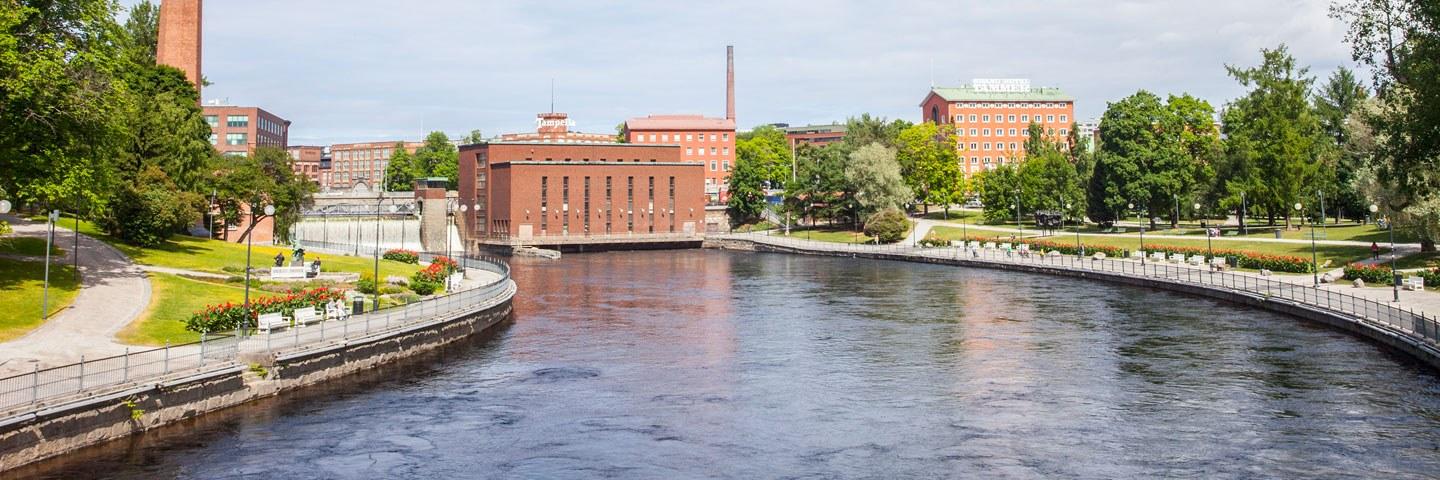Research Centres and Other Research Communities
Faculty of Social Sciences has several research centres funded by different external actors (foundations, organisations, the Academy of Finland, TEKES etc.).
Centre of Excellence
HEX - Academy of Finland Centre of Excellence in the History of Experiences. What can we know about the past experiences, and how do we transfer them into accurate knowledge and historically informed decisions? HEX looks for answers to these fundamental questions by rethinking historical experiences, historical explanations and historical knowledge, and their place in the current world. HEX is nominated and funded by the Academy of Finland (Finnish National Research Council) 2018–2025. It is hosted by the Faculty of Social Sciences (SOC), Tampere University.
Centre of Excellence in Research on Ageing and Care (CoEAgeCare) (2018–2025) coordinated by the University of Jyväskylä.
NORDWIT, the Nordic Centre of Excellence on women in technology-driven careers, was established in 2017. Funded by NordForsk, it is concerned with women’s careers in technology-driven research and innovation in and outside of academe.
Research Centres
Center for Global Public Health Research and Training is an interdisciplinary center for research, training, policy, and advocacy to prevent disease, improve population health and well-being, and reduce health disparities, particularly in resource-poor settings.
Emerging Technologies Lab (ETL) – a research center analyzing human behavior in evolving technological environments
Gerontology Research Center, GEREC is a collaborative effort in aging research jointly run by the University of Jyväskylä and the University of Tampere,
HEX - Centre for the History of Experience. What can we know about the past experiences, and how do we transfer them into accurate knowledge and historically informed decisions? HEX looks for answers to these fundamental questions by rethinking historical experiences, historical explanations and historical knowledge, and their place in the current world.
Narrare - Centre for Interdisciplinary Narrative Studies draws together the narrative studies conducted at the different schools of the University of Tampere. Furthermore, it functions as a platform for national and international collaboration in interdisciplinary narrative studies.
Prostate Cancer Research Center (PCRC)
Tampere Centre for Childhood, Youth and Family Research (PERLA) is a multidisciplinary venue of youth, childhood and family research.
Tampere Peace Research Institute (TAPRI) is a multidisciplinary and international research centre whose mission is to conduct high quality research on the causes of war, on non-violent resolution of conflicts, and on conditions for peace.
Research Center for Knowledge, Science, Technology and Innovation Studies (TaSTI) conducts research into the functioning of research communities, innovation environments and science and innovation policies.
Tampere Centre for Classical, Medieval and Early Modern Studies (TRIVIUM) is a multidisciplinary venue for researches and teachers of premodern society and culture.
Work Research Centre (WRC) combines basic academic research and contractual research, which serves the actual needs of society. Research focuses on work organisations, their practices and networks, the labour market and labour policy, and welfare, social relations and gender in working life.
Research Communities
CAST
GHSP - Global Health and Social Policy
Folklife archives
Human Information Processing Laboratory (HIP-Lab)
Tampere Research Group for Cultural and Political Sociology (TCuPS)
Speech and Voice Research Laboratory
Research groups that are at work on cancer research at the faculty belong to our regional cancer center, Fican Mid, and to our local TAYS Cancer Centre.









